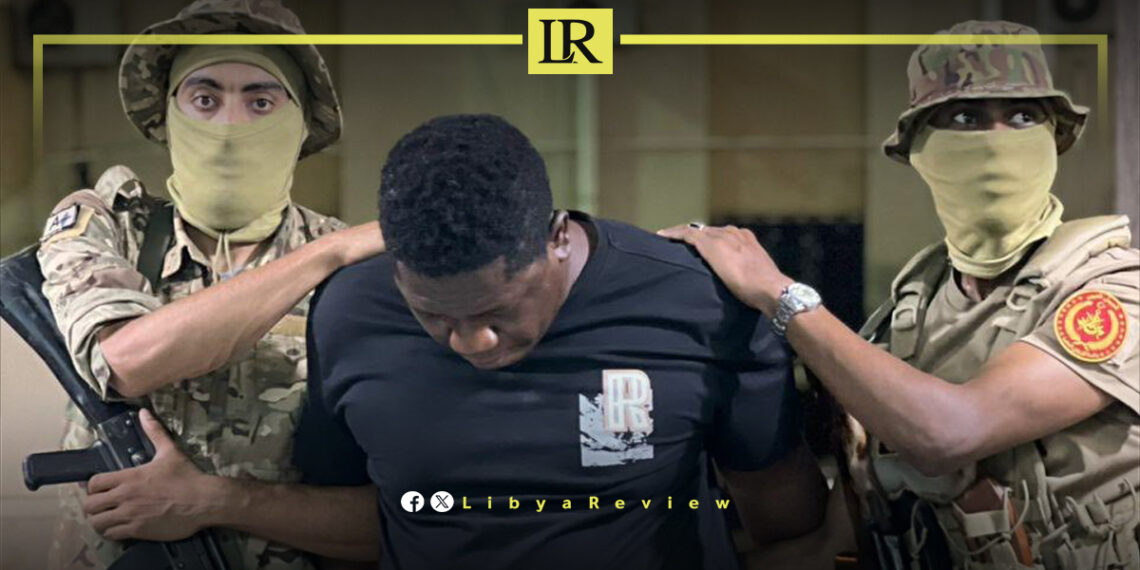Libya’s elite 444 Brigade has announced the arrest of one of the most dangerous foreign criminals operating in the country — a Ghanaian national known as Saeed, nicknamed “Biggie” — in a major security operation that also led to the rescue of 11 kidnapped women.
In a statement issued Monday, the brigade confirmed that one of its military units successfully raided a large compound used by Biggie to detain and exploit foreign women. The location, originally housing migrant laborers, had been converted into a criminal den, where women were reportedly held against their will and forced into prostitution under threats of violence.
The victims, of various nationalities, were rescued following precise surveillance and intelligence gathering, launched in response to multiple international alerts about the missing women.
According to the statement, the operation was carried out late last night, resulting in the liberation of the victims and the capture of the suspect. Biggie is currently in custody and will be referred to the Public Prosecution Office for further legal procedures.
The brigade reaffirmed its commitment to dismantling criminal networks operating within Libya and protecting vulnerable communities, particularly migrants.
Libya has been in chaos since a NATO-backed uprising toppled longtime leader Muammar Gaddafi in 2011. The county has for years been split between rival administrations.
Libya’s economy, heavily reliant on oil, has suffered due to the ongoing conflict. The instability has led to fluctuations in oil production and prices, impacting the global oil market and Libya’s economy.
The conflict has led to a significant humanitarian crisis in Libya, with thousands of people killed, and many more displaced. Migrants and refugees using Libya as a transit point to Europe have also faced dire conditions.
The planned elections for December 2021 were delayed due to disagreements over election laws and the eligibility of certain candidates. This delay has raised concerns about the feasibility of a peaceful political transition.
Despite the ceasefire, security remains a significant concern with sporadic fighting and the presence of mercenaries and foreign fighters. The unification of the military and the removal of foreign forces are crucial challenges.


